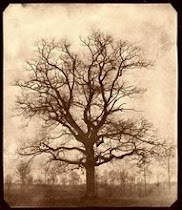In Ayn Rand's novel "Atlas Shrugged" Francisco D'Anconia, trying to convince Hank Rearden that his entrepreneurial success was in danger of being stolen by the government, tells of the ancient god Atlas who literally carried the weight of the world on his shoulders. Francisco stated that if he could recommend anything to Atlas, it would be to shrug. This idea of throwing off the weight of the world contains the very essence of liberty.
Liberty is a concept, an idea that speaks to not only rights and privileges, but provides a view of humankind. Liberty itself is granted by natural law (or God’s law) to each individual. “individuality, liberty, property — this is man. And in spite of the cunning of artful political leaders, these three gifts from God precede all human legislation, and are superior to it. Life, liberty, and property do not exist because men have made laws.”1 It stands to reason then that men’s laws and actions must promote and protect liberty above all other considerations. It also means that those who embrace liberty as desirable must also acknowledge the responsibilities that come with living in a free society.
Liberty requires a just and moral people. The deceptive idea that “I have the liberty to do whatever I want just so long as it is legal.” is one that man is most vulnerable to. Natural law proves this time and again. The partakers of the vices of drugs, pornography, alcohol, infidelity, power, etc. eventually find they are no longer free, but their actions are controlled by their built up dependence on outside substances and influences. Upon observing those who are bound to any one of these vices, can anyone make the case that they still possess their liberty? Only through great difficulty, self-government, and restitution can they free themselves and regain that which was taken away or given up.
The same principle must be applied to local and national government. We find our nation in a number of crises at this time, much of it caused by our violating the principle of liberty. On the economic front, our government and households have failed to follow the laws of fiscal discipline but have repeatedly abused them, perhaps thinking we will be able to avoid the negative consequences accompanying such actions. Liberty has been linked to a false definition of prosperity, easy money, and wealth at any cost. As a result, true liberty is in danger of being destroyed because of the great burden of debt that we now owe to other nations, many of whom are not considered friendly to the United States. Liberty is threatened in other areas as well; from foreign entanglements to vicious legislation to upholding corrupt and immoral leaders instead of electing wise and virtuous individuals to public office.
We must understand that true liberty comes with hardships, failures, and challenges but also provides the greatest opportunities, advancement, happiness and security that an individual can have. As Thomas Jefferson said, "I would rather be exposed to the inconveniences attending too much liberty than to those attending too small a degree of it."2 To experience true liberty, one must understand it, and consistently live in accordance to its laws. I speak not of the laws of governments, but of nature’s laws that cannot be violated without justice demanding to be filled.
In keeping with the spirit of Rand’s novel, we must shrug off the scourge of ideas that will destroy our liberty. That is, the idea that platform and political party mean everything and principles can be adjusted to fit our needs; that the source of liberty is our military might and government; that to partake of liberty, we can rely on our government to avoid the consequences of violating natural law; that our representatives can explain away any bad, immoral, or illegal behavior without consequences just so long as we agree with their policies; that we should look to government to solve our problems and not look within ourselves and our communities.
We must be cautious in relinquishing our liberties because of fear, uncertainty, or even in the supposed name of fairness. We live today where hysteria, political correctness and guilt are used as tools to drive public sentiment toward allowing powerful legislation to be passed and laws to be re-defined only to find out in the end that we are neither secure nor free, and yet another limb has been cut from the tree of liberty. Our God-given rights are stolen from us in plain view, and we are consistently told to rely on the very people who have, purposefully or unwittingly, participated in taking them from us.
Let us have honest and open debate about the future of America, for it is "We The People" who will shape that future with an understanding of true liberty and a trust in the Almighty to guide us in doing what is right. Will we engage in the cause of liberty, or will we just "shrug" and look the other way?
------------------
1 "The Law", Frederic Bastiat
2 "The Writings of Thomas Jefferson(Memorial Edition)
Tuesday, July 14, 2009
A Definition of Liberty
Posted by Scott at 5:17 PM
Subscribe to:
Post Comments (Atom)





1 Comment:
I can't decide what I think...I'll have to post some more after I think about your article...:)
Post a Comment